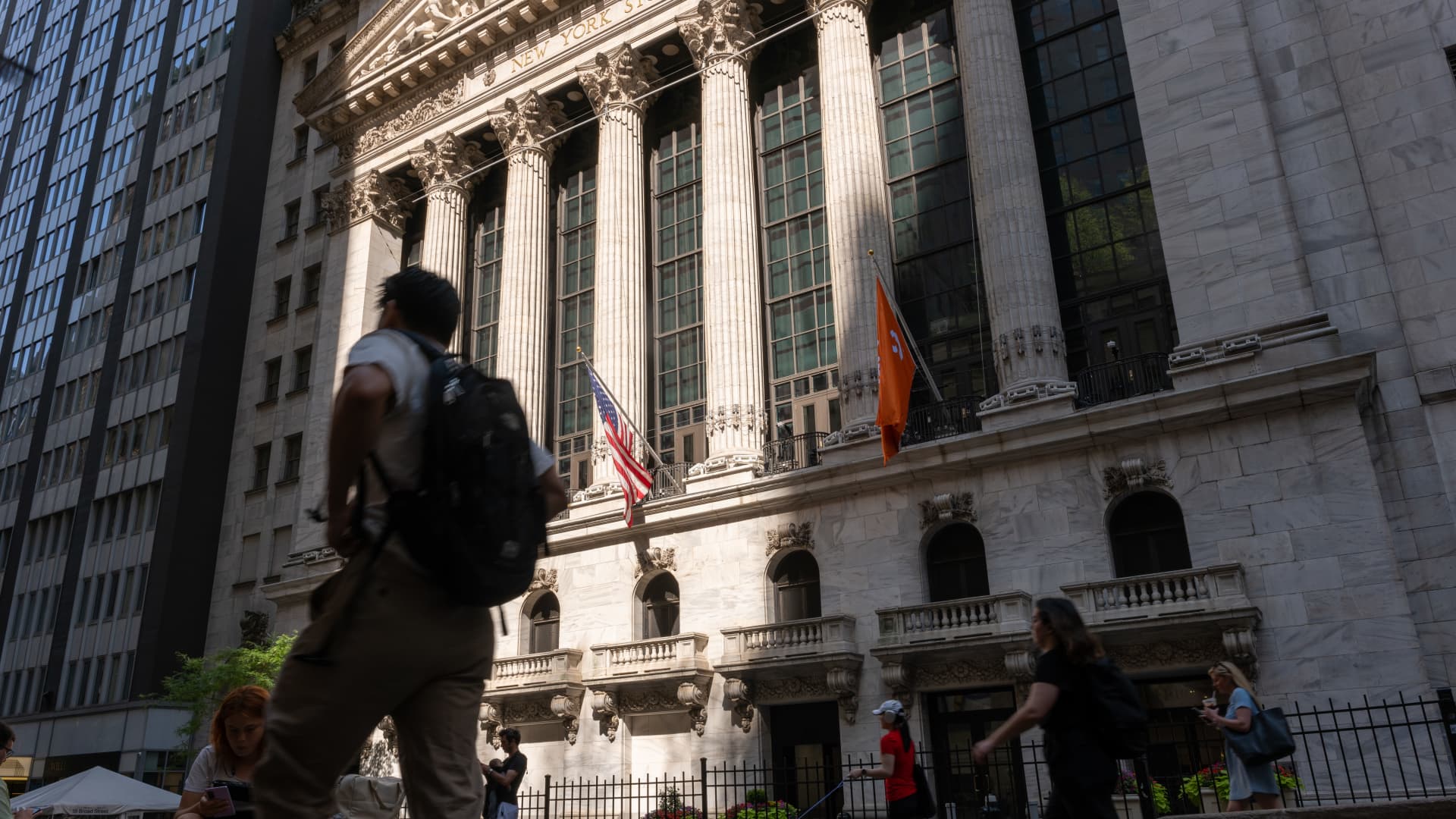- Optimism on dealmaking appears to be back now that President Donald Trump has suspended his highest tariffs and market jitters take a backseat.
- U.S. deal activity plunged by 66% to $9 billion during the first week of April, according to Mergermarket data, after Trump’s “liberation day” tariff announcement.
- Activity is rebounding this month and larger deals are taking place.
Hopes for an active year of mergers and acquisitions could be back on track after being briefly derailed by the Trump administration’s sweeping tariff policies last month.
Dealmaking in the U.S. was off to a strong start this year before President Donald Trump announced tariff policies that led to extremely volatile market conditions that put a chill on activity. In a pre-tariffs world, dealmakers were encouraged by the Trump administration’s pro-business flavor and deregulatory agenda, as well as previously easing concerns about inflation. Those trends were expected to fuel an even stronger M&A comeback in 2025, after last year’s moderate recovery from a slow 2023.
This year’s appetite for dealmaking came back quickly after Trump suspended his highest tariffs and market jitters took a backseat. If borrowing costs remain in check, many expect activity could be brisk.
“More clarity on trade policy and rebounding equities markets have set the stage for continued M&A, even in sectors hit especially hard by tariffs,” Kevin Ketcham, a mergers and acquisitions analyst at Mergermarket, told CNBC.
The total value of U.S. deals jumped to more than $227 billion in March, which saw 586 deals, before suddenly slowing down in April to roughly 650 deals worth about $134 billion, according to data compiled by Mergermarket.
So far this month, activity is rebounding and the average deal has been larger. More than 300 deals collectively valued at more than $125 billion have been struck this month as of May 20, Mergermarket said.
That’s encouraging. After Trump’s “liberation day” tariff announcement, U.S. deal activity plunged by 66% to $9 billion during the first week of April from the prior week, while global M&A activity dropped by 14% week over week to $37.8 billion, according to the data.
Charles Corpening, chief investment officer of private equity firm West Lane Partners, anticipates M&A activity to pick up after the summer.
“The trade war has indeed caused a slowdown in the anticipated M&A boom earlier this year, particularly in the second quarter,” Corpening said.
Higher bond yields are also hurting activity in the U.S. given that higher rates translate into greater financing costs, which reduces asset prices, he said.
Corpening expects greater interest towards special situations M&A, or deals that involve a motivated seller and tend to be flexible with their structure and terms, as well as smaller transactions, which are easier to finance and generally face less regulatory scrutiny.
“We’re beginning to see signs of recovery and we’re getting some clarity on the types of deals that are likely to get into the pipeline soonest,” Corpening said. “We anticipate that these earlier transactions will lean toward special situations as the better-performing businesses will wait for more market stability in order to maximize sale price.”
Several major deals have been announced in recent months, with large transactions occurring in tech, telecommunications and utilities so far this year.
Some of the biggest include:
According to Ketcham, the Dick’s-Foot Locker deal “likely isn’t an outlier” given that Victoria’s Secret on Tuesday adopted “poison pill” plan. Such a limited-duration shareholder rights plan suggests the lingerie retailer is concerned about the threat of a potential takeover, he said.
Ketcham added that some consumer companies are adapting to the new macroeconomic environment instead of pausing dealmaking. He cited packaged food giant Kraft Heinz confirmation on Thursday that it has been evaluating potential transactions over the past several months as an example. Kraft Heinz said it would consider selling off some of its slower growing brands or buying a brands in some of its core categories such as sauces and snacks.
This kind of trend would lead to smaller deals, which has already been seen this year. For example, PepsiCo scooped up Poppi, a prebiotic soda brand, for $1.95 billion in March.
Don’t miss these insights from CNBC PRO
This post was originally published on CNBC Markets



